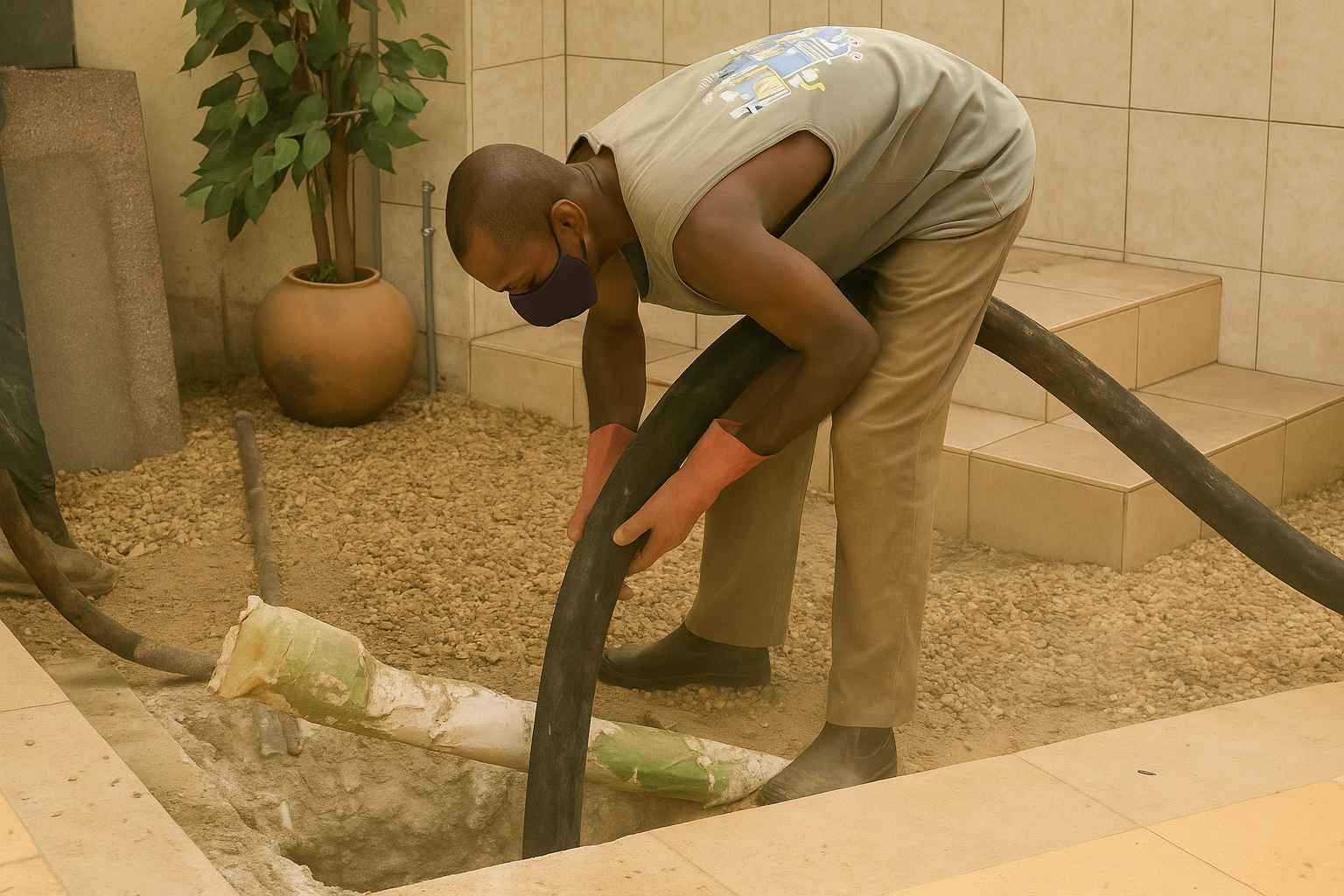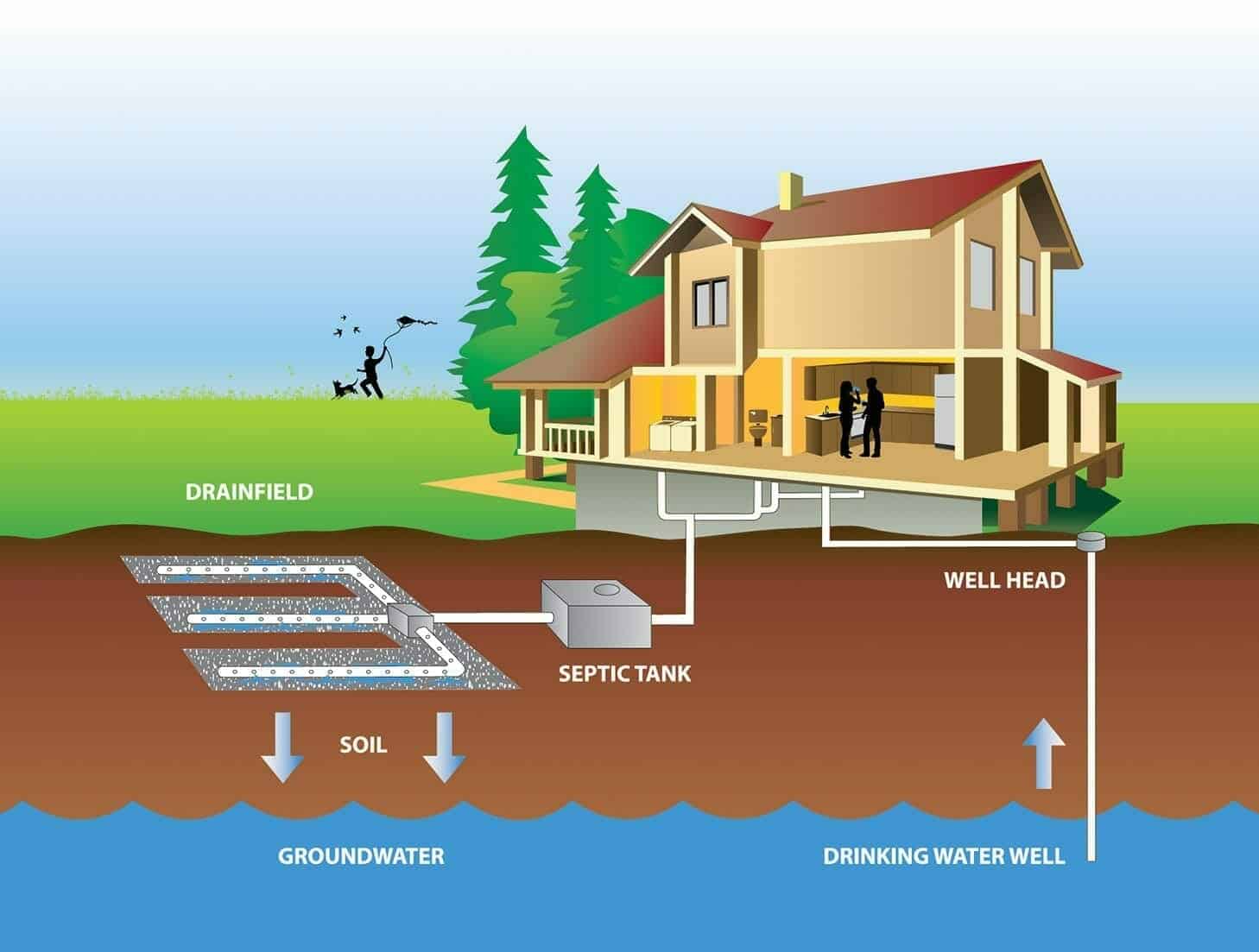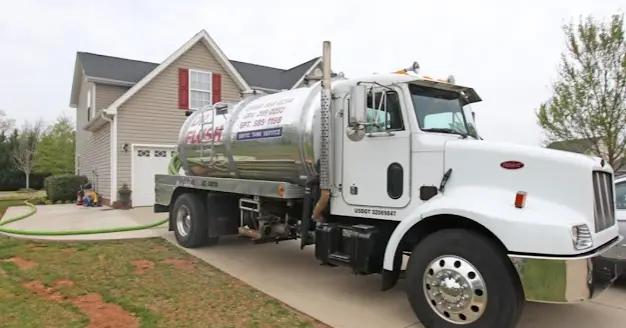Finding Quality Septic Services Near You: A Homeowner's Complete Guide
When it comes to maintaining your home’s waste management system, finding reliable septic services in your area is essential. Whether you’re installing a new septic system, need routine maintenance, or facing an emergency situation, working with qualified professionals ensures your system functions properly and protects both your property investment and the environment.
Why Local Septic Services Matter for Homeowners
Your septic system silently manages all wastewater from your home, operating continuously without much attention—until something goes wrong. Finding reputable septic services near your location offers several important advantages:
- Faster response times during emergencies
- Knowledge of local soil conditions and regulations
- Established relationships with local permitting offices
- Familiarity with common regional septic issues
- Availability for regular maintenance and inspections
“The most expensive septic system is the one you ignore until it fails,” explains Thomas Groves, Executive Director of the National Onsite Wastewater Recycling Association. “Regular maintenance from qualified local professionals can extend your system’s life by decades and prevent catastrophic failures that can cost tens of thousands to repair.”
Essential Septic Services Every Homeowner Should Know
Understanding the range of services available helps you maintain your system properly and address issues before they become major problems:
Professional Septic Tank Installation
Installing a septic system is a complex process that requires careful planning, engineering expertise, and proper execution. Professional installation services include:
Site Evaluation and System Design
Before installation begins, qualified professionals will:
- Conduct soil percolation tests to determine drainage capabilities
- Evaluate groundwater levels and seasonal water table fluctuations
- Assess property topography and available installation space
- Determine appropriate system size based on household needs
- Design a system that complies with local regulations
Permitting and Compliance
Navigating the regulatory requirements for septic installation can be challenging. Local septic services will:
- Obtain necessary permits from health departments and building authorities
- Ensure designs meet current code requirements
- Schedule required inspections throughout the installation process
- Provide documentation of proper installation for property records
Tank Selection and Placement
Choosing the right tank involves several important considerations:
- Tank material selection (concrete, plastic, or fiberglass) based on site conditions
- Proper sizing according to household size and water usage patterns
- Strategic placement that allows for easy maintenance access
- Appropriate depth and reinforcement for local soil conditions
- Safe distance from wells, water bodies, and property structures
Drain Field Installation
The drain field is critical to your septic system’s functionality:
- Proper excavation and preparation of the drain field area
- Installation of distribution pipes at correct grades and spacing
- Application of appropriate gravel or alternative drain field media
- Implementation of proper soil coverage and final grading
Regular Septic Tank Pumping
Regular pumping is the most important maintenance task for any septic system. Professional pumping services include:
Comprehensive Tank Evaluation
During a pumping service, professionals will:
- Locate and carefully expose the septic tank access ports
- Inspect the tank’s structural integrity for cracks or damage
- Measure sludge and scum layers to assess accumulation rates
- Check baffles and outlet filters for proper function
- Identify potential issues before they cause system failure
Complete Waste Removal
Thorough pumping ensures optimal system performance:
- Removal of all accumulated solids from the bottom of the tank
- Extraction of floating scum layer from the top of the tank
- Cleaning of tank walls to remove buildup
- Proper disposal of waste at approved treatment facilities
Post-Pumping Inspection and Documentation
After pumping, quality service providers will:
- Inspect empty tank for structural issues not visible when full
- Check inlet and outlet pipes for proper flow
- Provide documentation of service for your records
- Recommend appropriate pumping intervals based on usage patterns
Septic System Repairs and Troubleshooting
Even well-maintained systems occasionally require repairs. Professional repair services address:
Baffle and Pipe Repairs
- Replacement of damaged or corroded baffles
- Repair of cracked or collapsed pipes
- Clearing of stubborn blockages between house and tank
Tank Repairs
- Sealing of minor cracks in concrete tanks
- Replacement of damaged tank lids or access risers
- Reinforcement of weakened tank structures
Drain Field Rehabilitation
- Drain field flushing to remove biomat buildup
- Installation of additional drain field lines when necessary
- Implementation of advanced treatments to restore soil permeability
Septic System Inspections
Regular inspections help identify potential issues before they cause system failure:
Routine Maintenance Inspections
- Visual assessment of tank and drain field conditions
- Measurement of sludge and scum accumulation
- Verification of proper liquid flow through the system
- Assessment of drain field performance and soil absorption
Real Estate Transaction Inspections
- Comprehensive evaluation of entire system for property transfers
- Documentation of system age, type, and condition
- Identification of any necessary repairs prior to sale
- Verification of system compliance with current regulations
How to Find Reliable Septic Services in Your Area
Locating trustworthy septic professionals requires some research and due diligence:
Verify Credentials and Experience
Before hiring any septic service provider, ensure they have:
- Current state and local licenses specific to septic work
- Proper insurance coverage, including liability and worker’s compensation
- Certification from industry organizations like NAWT (National Association of Wastewater Technicians)
- Substantial experience with systems similar to yours
Check Reviews and References
Quality septic service providers will have:
- Positive online reviews across multiple platforms
- Willingness to provide references from previous customers
- Good standing with the Better Business Bureau
- Testimonials from long-term clients
Compare Service Offerings and Pricing
When evaluating potential providers:
- Request detailed written estimates from multiple companies
- Ensure estimates include all aspects of the service
- Ask about warranty coverage for parts and labor
- Inquire about maintenance programs or service agreements
Evaluate Communication and Professionalism
The best service providers demonstrate:
- Prompt response to inquiries
- Clear explanation of recommended services
- Willingness to answer questions thoroughly
- Professional appearance and well-maintained equipment
- Respect for your property during service visits
Understanding Septic Service Costs
Budgeting appropriately for septic services helps prevent surprises and ensures proper maintenance:
Installation Costs
New septic system installation typically ranges from $3,000 to $9,000 for conventional systems, with factors affecting cost including:
- System size and type
- Tank material (concrete, plastic, fiberglass)
- Site conditions requiring special engineering
- Local permitting and inspection fees
- Excavation challenges and accessibility
Alternative or advanced systems may cost $15,000 to $30,000 depending on technology and site requirements.
Pumping Service Costs
Regular pumping typically costs between $300 and $600, with variables including:
- Tank size and accessibility
- Amount of waste to be removed
- Distance to disposal facility
- Additional services performed during pumping
- Geographic location and local market rates
Repair Costs
Repair costs vary widely based on the specific issue:
- Minor repairs (baffle replacement, pipe repair): $200-$600
- Tank lid or riser replacement: $300-$800
- Drain field repairs: $1,000-$5,000
- Complete system replacement: $5,000-$30,000
Maintaining Your Septic System Between Professional Services
While professional services are essential, homeowners play a crucial role in system longevity:
Water Conservation Practices
- Fix leaking fixtures promptly
- Install high-efficiency toilets and appliances
- Spread laundry loads throughout the week
- Use shower flow restrictors to reduce water volume
Proper Waste Disposal
- Never flush non-biodegradable items or “flushable” wipes
- Avoid pouring grease or cooking oil down drains
- Limit garbage disposal use
- Keep household chemicals out of your septic system
Drain Field Protection
- Prevent vehicles from driving or parking on the drain field
- Avoid planting trees near the drain field area
- Direct roof drains and sump pumps away from the drain field
- Maintain proper landscaping over the system
Signs You Need Immediate Septic Service
Some septic issues require prompt professional attention. Contact local septic services immediately if you notice:
- Sewage backing up into household drains
- Gurgling sounds in plumbing system
- Standing water or unusually lush grass over the drain field
- Strong sewage odors inside or outside your home
- Slow drains throughout the house
- Repeated toilet flushing problems
Questions to Ask Before Hiring Septic Services
Before committing to any septic service provider, ask these important questions:
- Are you licensed and insured specifically for septic work?
- How long have you been servicing septic systems in this area?
- What specific services are included in your quote?
- Do you provide a written contract detailing all work to be performed?
- Will you obtain all necessary permits for the work?
- What warranty or guarantee do you offer on your services?
- How do you dispose of pumped waste?
- Can you provide documentation of the service for my records?
- What maintenance schedule do you recommend for my system?
The Bottom Line: Investing in Quality Septic Services
Your septic system represents a significant home investment that affects both property value and daily living comfort. Finding reliable septic services near your location ensures this critical system receives the professional care it requires.
By understanding the range of services available, knowing what to look for in a service provider, and maintaining your system between professional visits, you can enjoy trouble-free operation and avoid the considerable expense and disruption of system failure.
Remember that the most cost-effective approach to septic system management is regular maintenance from qualified professionals. Establishing a relationship with a trusted local septic service provider gives you peace of mind and protects your property for years to come.


